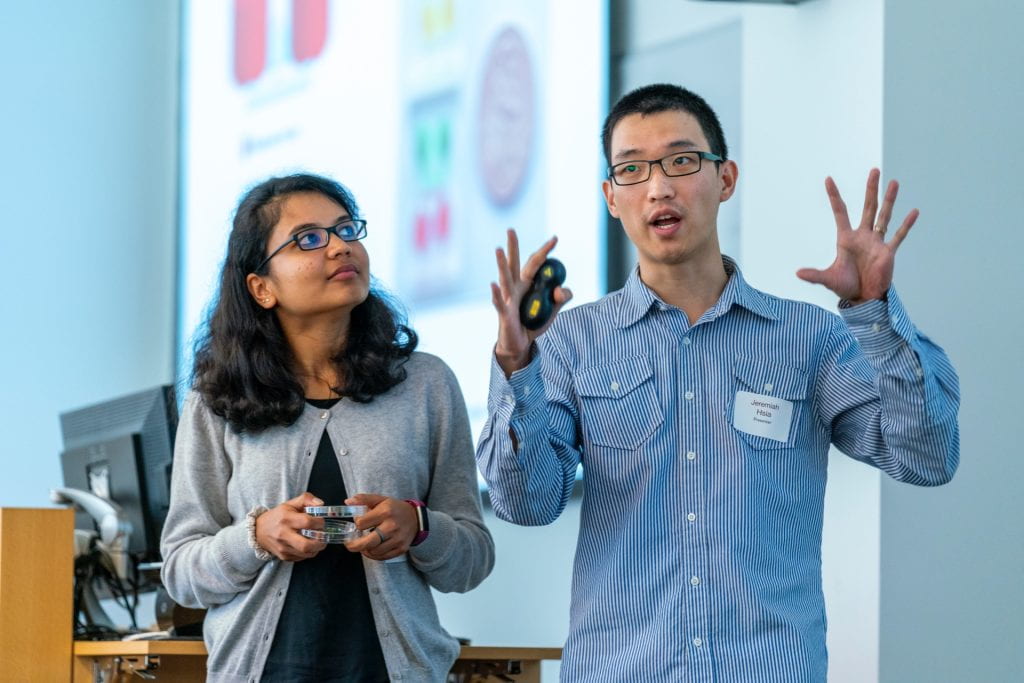For Trainees/Students

“With this experience, the disease has evolved from a biological problem in a lab bench to something mush more personal.”
“Talking to patients changed my perspective about how we should pursue research and with what goals.”
Science Communication Resources
- 11 Tips for Communicating Science to the Public (AAAS)
- Writing for a Lay Audience (Cancer Research UK)
- Practical Advice for Science Communication (From SciComm@Cornell)
- Making Data Talk: A Workbook (National Cancer Institute)
- Presentation Tips (Courtesy of Alexandra McGregor)
- ComSciCon (The Communicating Science Workshop for Graduate Students)
Practical Advice for Students Personally Affected by Cancer
- If your parent has cancer
- Advocating for a loved one with cancer
- Don’t give advice
- Helping from a distance
- Newly diagnosed with cancer
- What to say – and not say – to a person with cancer
- Why aren’t they doing more?
- No right way through cancer
- The customs of cancer care in the United States
FAQ
Why would I want to reach out to the patient community?
Engaging with patients and survivors should be part of the professional development of all cancer researchers, even those who do bench research.
For many students, engaging with patients makes their research meaningful. Cancer isn’t about cells – it’s about people.
Working with the patient community challenges trainees to present their work in lay terminology. It’s not about “dumbing down” the science. It’s about finding a common language that everyone can understand. Although surprisingly difficult at first, this type of communication is imperative for obtaining funding, building support, and communicating results.
How do I find cancer survivors and patients?
If you’re on a college campus, it is often easy to recruit staff and faculty (and retirees) who have been personally affected by cancer. Place a blurb in the staff and or retiree newsletter. If you’re connected with a clinical center, you may be able to post a flyer in appropriate waiting rooms.
Many cities have cancer support organizations such as the Cancer Support Community, and most communities offer some version of a cancer support group. (Search online for “Cancer support” and the city name). Reach out to the organizer and see what’s possible. If there’s a nearby NCI-designated cancer center, they will have an office of Community Outreach and Engagement which is a good starting point.
But many programs begin with a single researcher and a single patient. If your lab is studying breast cancer, invite someone with breast cancer to a lab meeting to describe their experiences.
What should I keep in mind when talking with a person with cancer? I don’t want to say the wrong thing.
- Be kind. What’s in your heart will come through even if you stumble over your words.
- Listen more than talk.
- Don’t give medical advice.
- Remember that every cancer patient is different.
- Be cautious about telling someone to stay positive.
Here are some slides with more detailed suggestions: Talking with cancer patients
I work with a PI who thinks that I’m not being productive if I’m not in the lab, but I really want to engage with the patient community. What do you suggest in this situation?
This is such a challenge because trainees are so dependent on their PI. Rather than trying to forge an on-going program, it may be possible to offer a one-time event such as a panel presentation by patients over dinner. (The dean’s office might have funds to pay for pizza).
It’s worth noting that the National Cancer Institute has developed a Cancer Community Partnership that provides these opportunities for its trainees.

